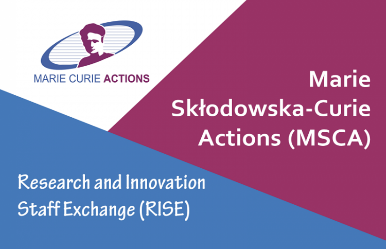The CELISE project has just been launched
On Tuesday 23, the kick-off meeting of the CELISE project to give the first steps took place. It took place throughout the day by Teams platform. In this meeting, more than 30 people participated.
The CELISE project has been funded by the Horizon 2020 MSCA-RISE Call. It has the participation of 15 academic institutions and companies from Europe and Latin America.

CELISE is framed within the concepts of circular economy and bioeconomy. I will serve as the main bridge between academic and research and innovation institutions and small or medium-sized companies. In addition, I will help rural and vulnerable areas. My main objective is the creation of a multinational group between European research and innovation institutions, industry and researchers in third countries. The aim of the group will be to exchange knowledge and experiences on cellulose materials from agricultural and forestry waste.
CELISE has a duration of 4 years, in which 15 institutions will participate, including 12 academic institutions from Europe and Latin America and 3 companies. The institutions per country are the following:
- Universidad de Cantabria and Universidad Politecnica de Madrid, in Spain;
- Latvijas Valsts Koksnes Kimijas Instituts of Latvia;
- Szkola Glowna Gospodarstwa Wiejskiego and Politechnika Lubelska, both from Poland;
- Bangor University and TWI Limited, both from UK;
- NIBIO – norsk institutt for biookonomi, from Norway;
- Aristotelio Panepistimio Thessalonikis, from Greece;
- Universidad Cooperativa de Colombia;
- Universidad Nacional de Chimborazo, from Ecuador;
- and Universidad Nacional del Litoral, from Argentina, and as companies:
- Inocure sro, from the Czech Republic
- Carbon Compost Company from the UK
- and Ecoresources ike from Greece;
Who is going to accompany me during my first steps?
The project is coordinated by the GER group of the University of Cantabria, with professors Alberto Coz and Tamara Llano from the department of chemistry and process and resource engineering being the main coordinators. In addition, CELISE will rely heavily on the help of the European and International Projects Office for the administrative and financial part of the project.
The project budget is based on research stays (secondments) and knowledge transfer between the participants in the project. Specifically, a total of 77 secondments of 42 participants. A total of 135 months of stay over the four years will be carried out. In addition to the stays, there will be other activitiessuch as seminars, symposia, workshops, etc.

The main strengths of the project are:
- The search for new ecological, innovative, portable and profitable solutions for SMEs and rural and vulnerable areas.
- The positioning in the European and Latin American environment of social challenges.
- In addition, the use of the circular economy and the bioeconomy, promoting the use of residual biomass.
- The international leadership in R + D + i.
- Furthermore, the use of open-access documents.
- And, finally, the professional impulse, and a wide network of contacts for future collaborations
What will my first steps be?
My first steps will be:
- Firstly, I am going to study the stakeholder needs for SMEs and rural areas in lignocellulosic processing.
- Then, I am going to choose the best raw materials (biomass residues) in rural and vulnerable areas. I am going to study cellulose fibres in relation to their characterisation and opportunities of business. Furthermore, I am going to consider the availability of the raw materials.
- In addition, I am going to select natural additives in biomass processing. In this case, considering the availability and characteristics of these natural materials.
- On the one hand, I am going to give recommendations about the best characterisation methods. The methods will be related to lignocellulosic biomass for obtaining cellulose-based products and energy. From traditional analysis of lignocellulosic fractions to novel methods for individual compounds (HPLC), FTIR and total characterization.
- On the otehr hand, I am going to study different hydrolysis processes in the chosen biomass residues from task 1.1. Acid, alkaline, deep eutectic solvents, steam explosion and autohydrolysis will be studied to separate cellulose from lignin and hemicellulose.
- I am going to study energy demand and biomass energy production possibilities in rural areas



